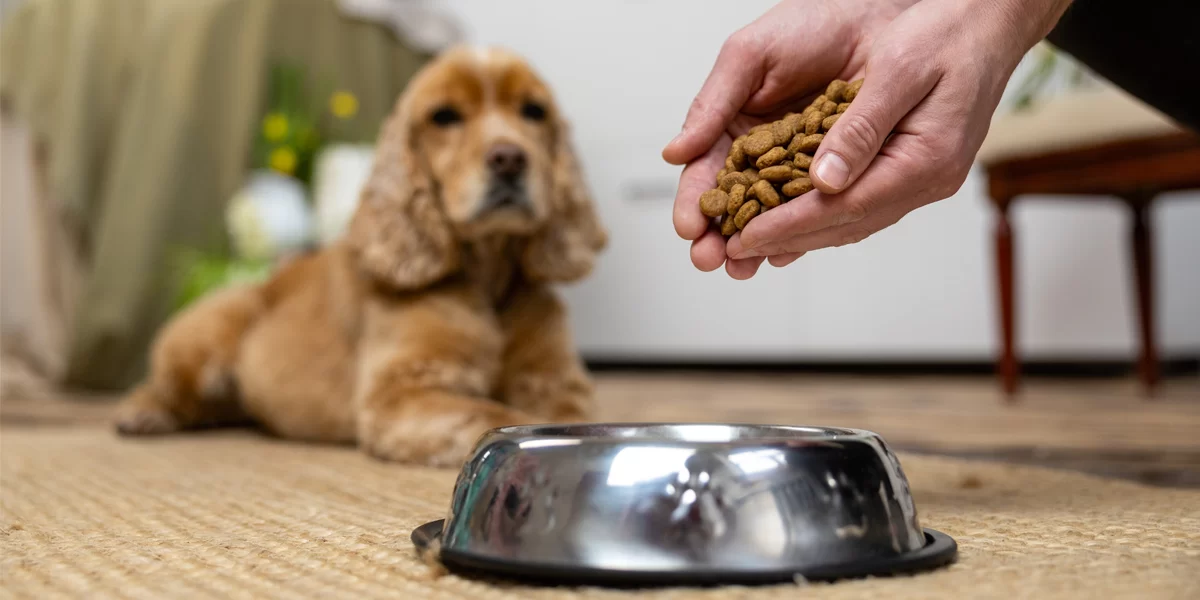Effective Pet Weight Management: Tips for Maintaining a Healthy Weight for Your Pet
- Understanding Pet Weight Management
- Why Pet Weight Management is Important
- Identifying Overweight Pets
- How to Manage Your Pet's Weight
- Healthy Diet for Pets
- When to Seek Professional Help for Pet Weight Management
Understanding Pet Weight Management
Pet weight management refers to the process of helping your pet maintain a healthy weight. Just like humans, pets can struggle with obesity or being underweight, which can lead to serious health issues. Effective weight management includes adjusting your pet's diet, exercise routine, and overall lifestyle to ensure they stay fit and healthy.
1. The Role of Diet and Exercise
Proper diet and regular exercise are the cornerstones of pet weight management. By ensuring your pet gets the right amount of food and the right kind of food, combined with regular physical activity, you can help them maintain a healthy weight and reduce the risk of obesity-related health problems.
2. The Importance of Consistency
Consistency is key in weight management. Regular feeding times, balanced meals, and daily exercise routines are essential for your pet's success in reaching and maintaining a healthy weight.
Why Pet Weight Management is Important
Managing your pet's weight is vital to their overall health and longevity. Obesity is a common issue among pets, especially in modern times when pets tend to lead more sedentary lives. Maintaining a healthy weight can prevent or manage several health conditions, improve your pet's mobility, and increase their lifespan.
1. Preventing Chronic Health Issues
Obesity in pets can lead to conditions like diabetes, joint problems, heart disease, and respiratory issues. By keeping your pet at a healthy weight, you reduce the chances of these chronic health conditions and improve their quality of life.
2. Enhancing Mobility and Energy
Pets that maintain a healthy weight are more active and energetic. They are more likely to play, explore, and engage with their environment, leading to a more fulfilling and happy life.
3. Longer Lifespan
Studies have shown that pets who maintain a healthy weight live longer, healthier lives. Weight management directly contributes to reducing the risk of early mortality in pets.
Identifying Overweight Pets
Recognizing whether your pet is overweight is the first step in effective weight management. Overweight pets are often prone to health problems, and early intervention is key to preventing long-term issues.
1. Common Signs of Overweight Pets
Some signs that your pet may be overweight include visible fat deposits around their abdomen, reduced mobility or difficulty moving, and a noticeable lack of energy. You may also notice that your pet's ribs are harder to feel, or you may have trouble monitoring their weight using regular measuring tools.
2. The Body Condition Score (BCS)
Veterinarians often use the Body Condition Score (BCS) system to assess a pet's weight. The BCS ranges from 1 to 9, with 1 being extremely underweight and 9 being extremely overweight. A healthy pet typically falls between a BCS of 4 to 5.
How to Manage Your Pet's Weight
Managing your pet's weight involves a combination of dietary adjustments and increased physical activity. It's essential to create a balanced routine that your pet can follow comfortably.
1. Create a Balanced Diet
Provide your pet with high-quality, nutritionally balanced food. Consider their age, breed, and activity level when selecting food. If your pet is overweight, your veterinarian may recommend a weight management formula to help them lose weight gradually.
2. Portion Control
Feeding your pet the right portions is crucial. Overfeeding, even healthy food, can lead to weight gain. Use measuring cups to ensure you are giving your pet the correct amount of food based on their ideal weight.
3. Increase Physical Activity
Exercise is a fundamental part of weight management. Engage your pet in regular playtime, walks, or activities that encourage movement. For dogs, regular walks or playdates with other dogs are great ways to stay active. For cats, interactive toys or setting up climbing structures can help them stay fit.
4. Monitor Progress
Track your pet's weight regularly and adjust their diet and exercise routine as needed. Regular veterinary checkups are essential for monitoring your pet's weight and overall health.
Healthy Diet for Pets
Choosing the right diet is crucial for your pet's health and weight management. A healthy diet supports their energy needs while helping them maintain an appropriate weight.
1. High-Quality Protein
Ensure that your pet's diet includes adequate protein to support muscle health. Protein is especially important for pets who are trying to lose weight, as it helps them maintain muscle mass while shedding fat.
2. Balanced Nutrients
A healthy diet should include a good balance of fats, carbohydrates, vitamins, and minerals. Your veterinarian can recommend specific food brands that meet your pet’s nutritional needs based on their weight management goals.
3. Avoiding Table Scraps
While it's tempting to share your food with your pet, table scraps can contribute to unhealthy weight gain. Stick to a pet-friendly diet designed for weight management to help your pet reach their ideal weight.
When to Seek Professional Help for Pet Weight Management
If your pet's weight continues to be a challenge despite your best efforts, it may be time to seek professional help. A veterinarian or pet nutritionist can help design a customized weight loss program tailored to your pet's needs.
For expert advice on managing your pet's weight and keeping them healthy, visit Hidden Brook Veterinary for additional guidance and resources.












